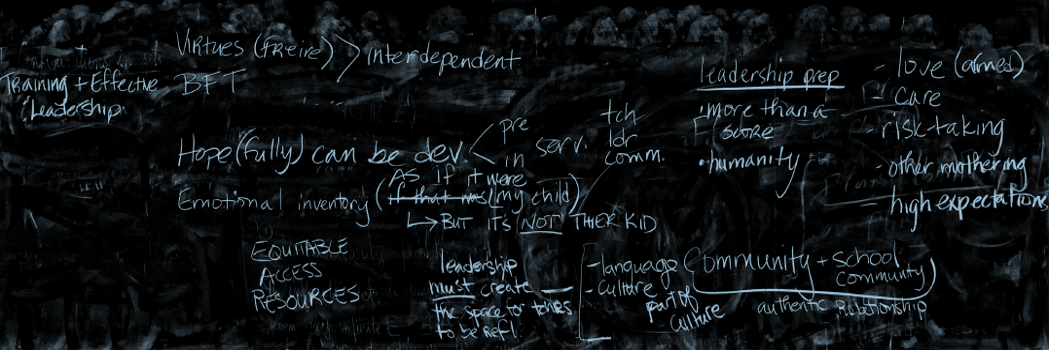Hey everyone, my unessay is on instagram. You shouldn’t need an account to access it since my profile is public.
Unessay: https://www.instagram.com/p/CO1B0_IjizQ/?utm_source=ig_web_copy_link
The statement I read from last week is below.
can empathy be taught?
what does care look like in a school system driven by capitalism? can they even co-exist?
how can care shift from an individual act/practice to a collective project?
—
I would argue that empathy can be learned, but not necessarily taught. I would also argue that the ideological pillars of (necro)capitalism interfere with this learning process and disincentivize altruistic, caring behaviors that have the potential to contribute to our empathy-learning-by-doing. Individualism negates the truth of our interdependence and casts care as an interpersonal exercise, a thing one does for another, rather than an act of collective-preservation.
The animating spirit of capitalist formations is often fundamentally opposed to life (human, animal, plant, or otherwise). Care, behavior I define as life preserving, affirming, and honoring, cannot exist in such a system except as an act of resistance, as a challenge to the savage individualism that animates American society. Looking outside of capitalism for relational frameworks that center care has always led me to anarchist (and anarcho-adjacent) theorists.
As a teacher, the larger questions that guide my intellectual journeying always bring me back to questions of classroom practice and praxis. In searching for lines of anarchist thought that render the contours of anti-oppressive pedagogy more clear, I have found recurrent references to gardening as a metaphor for education. Considering the difference that exists between “aesthetic care” and “authentic care” has led me to wonder if instead of looking to gardens we might instead consider what forests might have to tell us about teaching and what it would mean to be a steward instead of a gardener.
We need to break free of the trellis, to climb wildly up a tree, to be in authentic community, to be embedded in networks of authentic care and mutual dependence. We need to be in the forest. Forests are wild, abundant places. They are robust and adaptable in proportion to the extent to which they are diverse and intergenerational.
At best, the education system we have can support learning spaces that feel much more like gardens than they can ever feel like forests. While I work towards disassembling the garden walls, I am listening to what my plants have to tell me about empathy, care, and growth. The images that follow represent the wisdom they have shared with me.
Lessons in Radical Care: (as told by houseplants) is presented as an instagram story. The graphics are largely text-based with botanical motifs throughout. The textual content draws parallels between caring for plants and enacting care in the classroom.
References for annotated bibliography
Bobby Banerjee, S. (2008). Necrocapitalism. Organization Studies, 29(12), 1541-1563.
Hayworth, R. (ed.) (2012). Anarchist pedagogies: Collective actions, theories, and critical reflections on education. PM Press.
Heckert, J. (2010). Listening, caring, becoming: anarchism as an ethics of direct relationships. In Anarchism and moral philosophy (pp. 186-207). Palgrave Macmillan, London.
Latif, A., & Jeppesen, S. (2007). Toward an anti-authoritarian anti-racist pedagogy. 2007) Constituent Imagination: Militant Investigations/Collective Theorization, 288-300
Mbembe, A. (2008). Necropolitics. In Foucault in an Age of Terror (pp. 152-182). Palgrave Macmillan, London.
Thompson, B. (2017). Teaching with tenderness: Toward an embodied practice. University of Illinois Press.
Verter, M. C. (2013). Undoing patriarchy, subverting politics: Anarchism as a practice of care. The anarchist turn.



